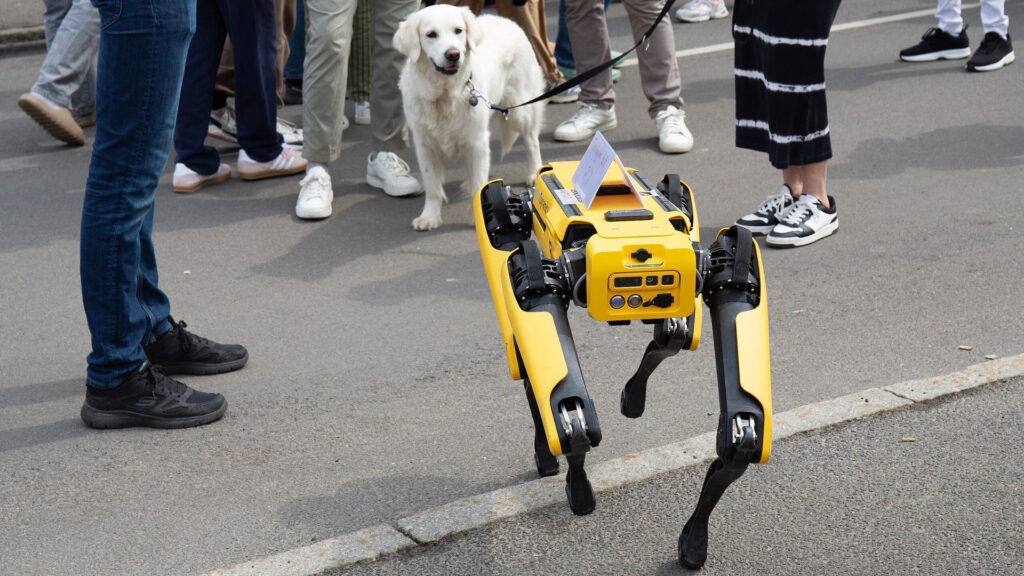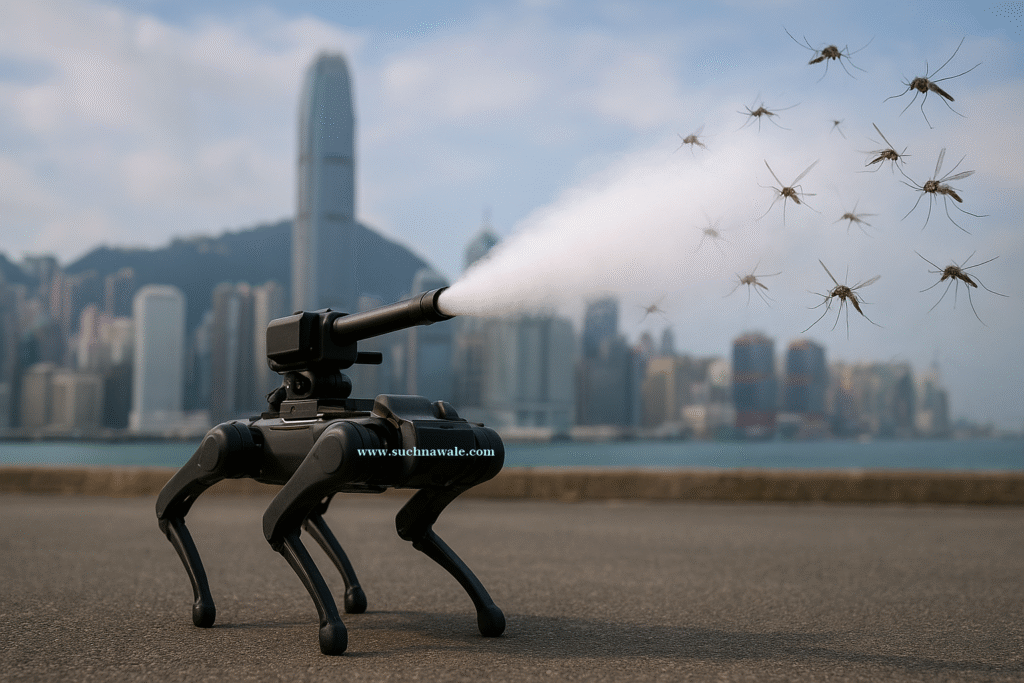
Photo source: msn.com
Hong Kong is turning to advanced technology to combat the growing threat of mosquito-borne diseases. The city’s Environment and Ecology Department has announced a trial of robotic dogs designed to spray insecticides in hard-to-reach areas, particularly targeting the Aedes albopictus mosquito, known to spread the chikungunya virus. This innovative step reflects Hong Kong’s efforts to blend artificial intelligence with public health safety.
The choice of robotic dogs is not accidental. Traditional mosquito-control teams often struggle in challenging environments such as steep slopes, dense construction sites, or hot weather conditions. Manual fogging exposes workers to extreme heat and potential health risks. By using quadruped robots—similar to Boston Dynamics-style designs—authorities aim to reduce human exposure and ensure precise spraying of insecticides. Each robot is equipped with an ultra-low volume fogger that can be controlled remotely or programmed to operate automatically. The system even has safety features to pause spraying when a human is detected nearby.
The trial comes at a critical time. Hong Kong has recorded several imported chikungunya cases this year, raising fears of local transmission. Since infected travelers can introduce the virus, and local mosquitoes can spread it further, authorities see mosquito control as an urgent priority. Drones were previously considered for spraying, but strong winds dispersed the chemicals too quickly, making robotic dogs a more reliable option.

For the city, the benefits are clear. These robots can reach places where humans cannot easily go, improving safety, efficiency, and precision in mosquito-control operations. However, concerns remain about high deployment costs and the possible impact of insecticides on beneficial insects such as bees and butterflies. Experts also note that while technology is helpful, traditional prevention—like removing stagnant water—remains essential in fighting mosquito breeding.
If the trial proves successful, Hong Kong could expand the use of robotic dogs in mosquito control, potentially setting an example for other cities facing similar challenges. Combined with other approaches, such as releasing bacteria-infected mosquitoes to reduce reproduction, robotic fogging could become part of a broader strategy to fight vector-borne diseases.
Hong Kong’s experiment shows how technology, when carefully applied, can offer new solutions to old public health problems—turning robotic dogs into unexpected allies in the battle against mosquitoes.



